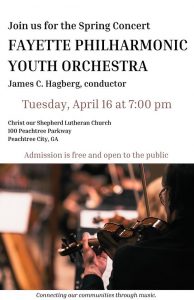A Fayette County woman is asking for the latest judge appointed to her long-running divorce case to be removed because of his connections to a previous presiding judge on the case: Paschal A. English Jr.
Attorneys for Janet Bell Crook of Peachtree City also have alleged that Senior Superior Court Judge G. Grant Brantley of Cobb County gave preferential treatment to English by allowing him to avoid testifying at a pre-trial hearing June 25 despite a subpoena issued in the case.
According to court filings, Brantley in 2008 authored a letter seeking campaign funds for English’s re-election bid. The letter was listed as an in-kind campaign donation of $42 on Judge English’s campaign finance reports.
The divorce case between Mrs. Crook and Gregory E. Crook has been ongoing since April 2008 and the lengthy pre-trial phase has led to frustration with some involved in the case, particularly the guardian ad litem who was appointed to represent the best interests of the Crooks’ two minor children.
Although former Judge English was not named in the lawsuit as a defendant, Mrs. Crook’s latest attorneys have alleged that he failed to timely rule on several motions including one seeking an emergency change in child custody.
A May 24 motion filed by Mrs. Crook’s attorneys claimed that former Judge English, when he presided over the case during a span of several months, at one point said he would not rule on any motions until the case was ready for trial.
“Defendant had no remedy because Judge English refused to consider any motions,” Mrs. Crook’s attorneys said in a May 24 motion. “This was and is unconscionable.”
English was ultimately released from the subpoena Aug. 9 as Mrs. Crook and her attorneys decided not to pursue his testimony in the case, according to an email from attorney Gary Freed to Judge Brantley.
Last week Mrs. Crook’s attorneys Kathy L. Portnoy and Freed filed the motion seeking Judge Brantley’s recusal from the case.
The Crook v. Crook divorce case had been assigned to Brantley, one of two senior Superior Court Judges who were designated to serve in the Griffin Circuit following the stunning March resignations of English and fellow jurist Johnnie L. Caldwell Jr. Because of the alleged judicial improprieties with the case on behalf of Caldwell in particular, the circuit’s other two elected judges also recused themselves from the case.
It wasn’t until several weeks following English’s resignation that it became public that he was caught having an affair with a public defender attorney, Kim Cornwell, inside a motor vehicle on the outskirts of Fayetteville by a sheriff’s deputy in 2008.
In the motion to disqualify Brantley from the case, the allegations of special treatment toward English as a witness were contrasted towards Brantley’s treatment of another witness in the case who was forced to appear in court and testify under subpoena Sept. 10 despite the fact that she was preparing to leave that afternoon for a family vacation.
Although Judge Brantley had suggested that English could be allowed to enter testimony by way of a deposition, no such courtesy was allowed to the other witness, who happened to be the children’s therapist. The therapist had offered to testify via phone or sit for a deposition as soon as the following Monday, according to an affidavit from Mrs. Crook’s attorney Kathy Portnoy.
Portnoy and Freed then suggested that the therapist could be released from her subpoena that day, but Brantley interjected that if such happened the therapist would not be allowed to testify at a future hearing on a request to modify the temporary child custody arrangement, Portnoy’s affidavit claims.
Ultimately the therapist appeared at the Sept. 10 hearing and testified, the affidavit said.
By contrast, when English declined to appear at the June 25 hearing, Brantley resisted attorney Freed’s request that English be held in contempt.
“I know from emails he sent to you all and copied to me that he’s willing to sit for a deposition. So, in my mind, I don’t see him as trying to avoid testifying,” Judge Brantley is quoted as saying during the June 25 hearing, according to Freed’s affidavit.
In addition to its inordinate length prior to completion, the Crook v. Crook divorce case is also of note because it inadvertently led to the resignations of Judges Caldwell and English. One of Mrs. Crook’s former attorneys, Peachtree City divorce attorney Susan Brown, informally complained to Superior Court Judge Christopher C. Edwards in March about favoritism in the case exhibited by Judge Caldwell particularly in terms of bias against Brown as an attorney because she had refused his sexual advances.
When Caldwell resigned in March, he admitted days later that he had made inappropriate remarks toward female attorneys. Four days following Caldwell’s resignation, English too turned in his resignation, though not publicly admitting any wrongdoing.
English and public defender attorney declined to cooperate with the subsequent investigation into their affair that was conducted on Edwards’ order by Fayette County District Attorney Scott Ballard and Fayette County Chief Public Defender Joe Saia.
Ballard and Saia reported in May they could find no wrongdoing on behalf of English or Cornwell that may have jeopardized the state nor any criminal defendants.











Leave a Comment
You must be logged in to post a comment.